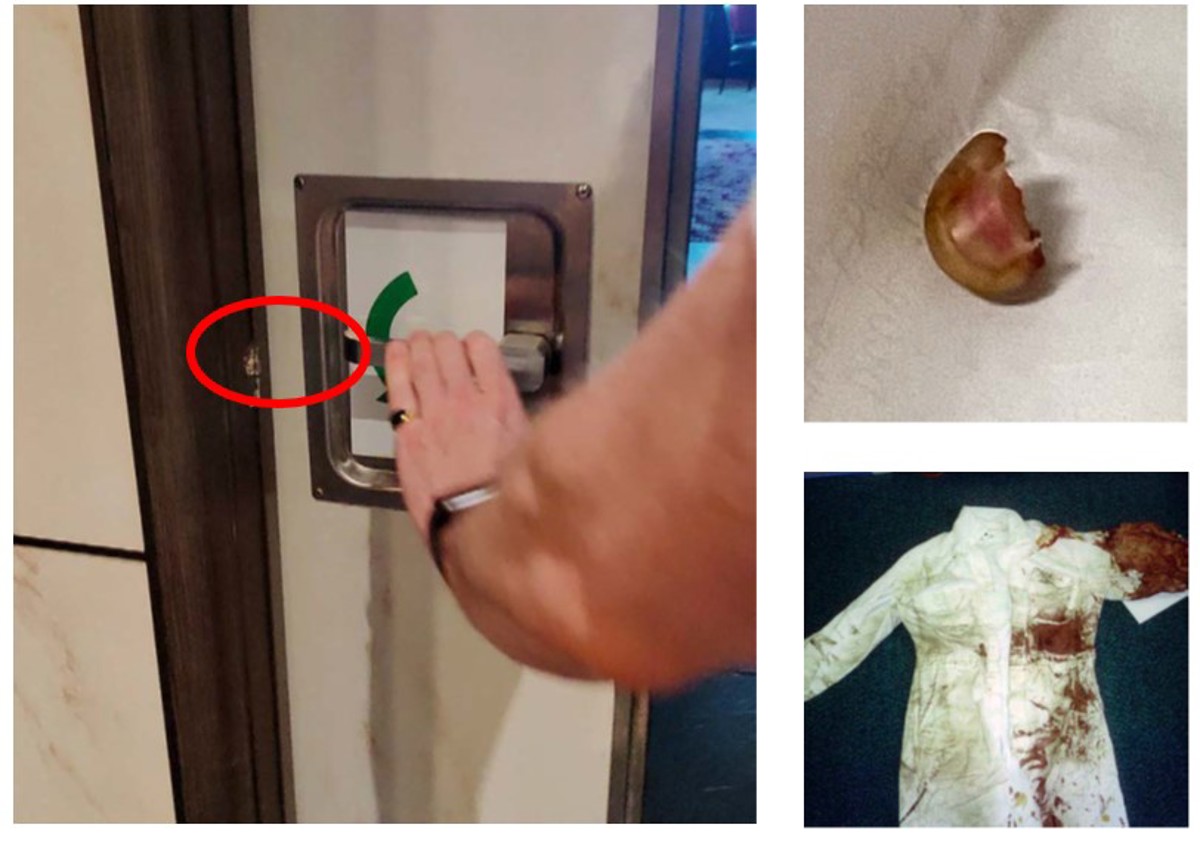MAIB: “pinkie is no longer perkie”
- Safety Flash
- Published on 30 November 2022
- Generated on 21 February 2026
- IMCA SF 27/22
- 2 minute read
Jump to:
The Marine Accident Investigation Branch Safety Digest 2/2022 includes an incident in which a crew member on a large cargo vessel lost part of their finger while passing through a hydraulically operated sliding door to an adjoining machinery space.
What happened?
The door was fitted with a operating lever handle on either side. The crew member used their right hand to operate the lever handle and the door began to open to the right. The crew member walked through the doorway and placed their left hand on the lever handle on the other side, pushing it down once more to continue the operation.

Door operating handle – red circle indicates line of fire
What went wrong?
The door opened fully, while the crew member kept their hand on the handle. As the door retracted fully, the crew member’s left hand became trapped between the handle and the doorframe, resulting in the little finger suffering amputation of the fingertip and nail above the first knuckle. It could not be reattached.
The door was not faulty: Subsequent inspection for technical, hydraulic and electrical defects found it to be in good working order.
Lessons learned (MAIB)
- Training: automatic or powered doors are potentially very dangerous. Hydraulic and electric power-operated systems are unforgiving in their closing force and should be treated with respect. Crew should be provided with suitable training on both the safe use of these doors and the dangers of their unsafe operation.
- Procedures: If we go through a powered door often, it is easy to forget the dangers and take shortcuts such as walking through the door before it has fully opened. Previous accidents have sadly resulted in more serious injuries than those suffered in this case, and sometimes death.
- Awareness: Entrapment is a hazard often associated with moving machinery and wariness is the watchword. There should have been no need for the crew member’s hand to remain on the door’s operating lever and this action indicates insufficient knowledge of the system.
- Short cuts: if the operator was attempting to take a shortcut, then a greater understanding of the system would have been required to understand the dangers of doing so. Lack of understanding of how a system will work when shortcuts are taken, and the potential consequences, are a good enough reason not to take short cuts.
Related Safety Flashes
-
IMCA SF
15 January 2016
-
IMCA SF 06/22
11 March 2022
-
-
IMCA SF 01/01
1 January 2001
IMCA Safety Flashes summarise key safety matters and incidents, allowing lessons to be more easily learnt for the benefit of the entire offshore industry.
The effectiveness of the IMCA Safety Flash system depends on the industry sharing information and so avoiding repeat incidents. Incidents are classified according to IOGP's Life Saving Rules.
All information is anonymised or sanitised, as appropriate, and warnings for graphic content included where possible.
IMCA makes every effort to ensure both the accuracy and reliability of the information shared, but is not be liable for any guidance and/or recommendation and/or statement herein contained.
The information contained in this document does not fulfil or replace any individual's or Member's legal, regulatory or other duties or obligations in respect of their operations. Individuals and Members remain solely responsible for the safe, lawful and proper conduct of their operations.
Share your safety incidents with IMCA online. Sign-up to receive Safety Flashes straight to your email.